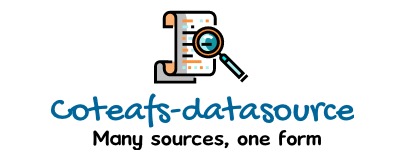<dependency>
<groupId>com.github.wasiqb.coteafs</groupId>
<artifactId>datasource</artifactId>
<version>1.2.0</version>
</dependency>Pojo class for our data file login-data.yml.
import java.util.List;
import com.github.wasiqb.coteafs.datasource.annotation.DataFile;
import lombok.Data;
@Data
@DataFile
public class LoginData {
private List<Login> loginData;
}
@Data
public class Login {
private String password;
private String userName;
private String path;
}Data for our Yml data file login-data.yml.
login_data:
- user_name: WasiqB
password: Admin
path: ${sys:user.dir}
- user_name: FaisalK
password: Abcd
path: ${sys:user.dir}Following is an example to convert data file into a TestNG data provider.
import static com.google.common.truth.Truth.assertWithMessage;
import static java.lang.System.getProperty;
import com.github.wasiqb.coteafs.datasource.data.LoginData;
import org.testng.annotations.DataProvider;
import org.testng.annotations.Test;
public class DataSourceYmlTest {
@DataProvider
public Iterator<Object[]> getLoginDataYml () {
final LoginData loginData = DataSource.parse (LoginData.class);
final List<Object[]> data = new ArrayList<> ();
loginData.getLoginData ()
.forEach (d -> data.add (new Object[] { d }));
return data.iterator ();
}
@Test (dataProvider = "getLoginDataYml")
public void testYmlDataSource (final Login login) {
assertWithMessage ("User Name").that (login.getUserName ())
.isNotEmpty ();
assertWithMessage ("Password").that (login.getPassword ())
.isNotEmpty ();
assertWithMessage ("Path").that (login.getPath ())
.isEqualTo (getProperty ("user.dir"));
}
}You can use placeholders in JSON and YML files. Following is the table of allowed variable formats which can be used in the placeholder.
| Desired value | Sample Placeholder |
|---|---|
| Base64 Decoder | ${base64Decoder:SGVsbG9Xb3JsZCE=} |
| Base64 Encoder | ${base64Encoder:HelloWorld!} |
| Java Constant | ${const:java.awt.event.KeyEvent.VK_ESCAPE} |
| Date | ${date:yyyy-MM-dd} |
| DNS | ${dns:address|apache.org} |
| Environment Variable | ${env:USERNAME} |
| File Content | ${file:UTF-8:src/test/resources/document.properties} |
| Java | ${java:version} |
| Localhost | ${localhost:canonical-name} |
| Properties File | ${properties:src/test/resources/document.properties::mykey} |
| Resource Bundle | ${resourceBundle:org.example.testResourceBundleLookup:mykey} |
| Script | ${script:javascript:3 + 4} |
| System Property | ${sys:user.dir} |
| URL Decoder | ${urlDecoder:Hello%20World%21} |
| URL Encoder | ${urlEncoder:Hello World!} |
| URL Content (HTTP) | ${url:UTF-8:http://www.apache.org} |
| URL Content (HTTPS) | ${url:UTF-8:https://www.apache.org} |
| URL Content (File) | ${url:UTF-8:file:///${sys:user.dir}/src/test/resources/document.properties} |
| XML XPath | ${xml:src/test/resources/document.xml:/root/path/to/node} |
Custom value is not supported in the placeholder.
Thanks to these wonderful people (emoji key):
Wasiq Bhamla 💻 |
Mohammad Faisal Khatri |
This project follows the all-contributors specification. Contributions of any kind welcome!




